Editor’s Note: This is the second part of the NoC interview with Barry Saturday. You can read Part 1 here.
In their 1988 book Manufacturing Consent, Edward Herman and Noam Chomsky argue that American-style propaganda operates through a five-part filtering process, the result of which is to have citizens accept (consent to) a narrow band of national debate.
In the absence of overt government censorship, the authors argue, disseminating the Party Line is instead outsourced to private sector media outlets, whose business models require special access to government and community actors in order to report the news, and happy advertisers to make money off the reporting. These two conditions incentivize outlets as disparate as the New York Times and Fox News to (1) promote views that fall within a fairway of acceptable thought; and (2) keep “dissent and inconvenient information” either pushed to the Fairway’s margins (the Rough) or mediated through an acceptably Fairway perspective. Debate occurs under this model–but it is carefully managed to exclude certain viewpoints while enhancing others.
With its grand themes of communism, colonialism and ecocide, Manufacturing Consent is normally understood as a work of national and global scope. Less discussed is how Herman and Chomsky’s ideas work on the local level.
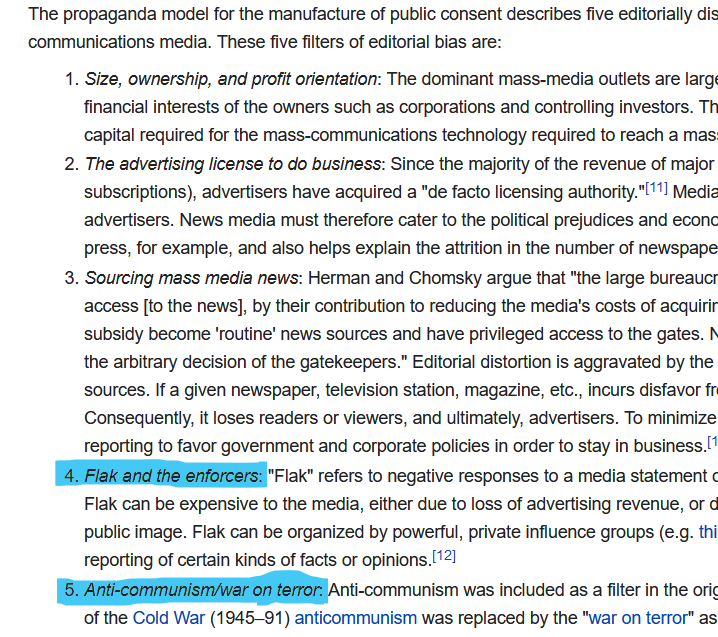
Part Two of NoC‘s interview with Barry Saturday focuses on a local moment of manufactured consent. Last month, Saturday was banned by the 280– 281-member Lexington Urbanist Forum (LUF), a Facebook group “to discuss urban development and policy in Lexington KY from a New Urbanist perspective.”
Public-facing with private membership privileges required to post, the Lexington Urbanist Forum resides at what passes for the progressive side of the city’s Development Fairway. LUF does not produce much in the way of original content. Mainly, its members just link to urbanist-related articles from across the globe and then comment on them. Befitting the group’s acceptably Development Fairway views, it is not uncommon for leading local NGOs or officials to post and interact on the LUF page.
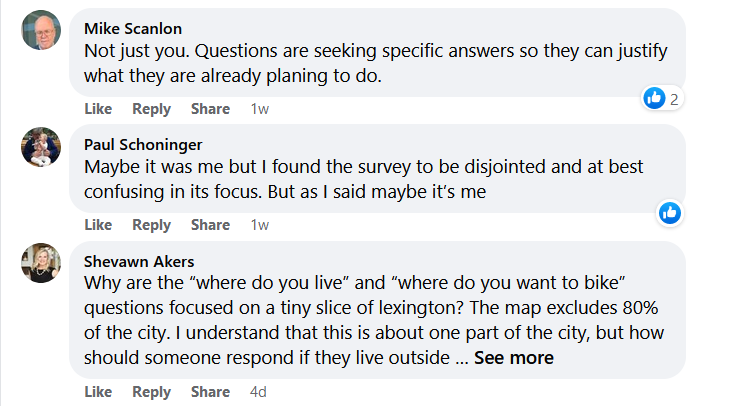
Saturday’s LUF banishment owed to his response to a link to a national Bus Rapid Transit article. The comment in question focused mostly on why only a scant minority of Lexingtonians ride the bus:
a) only an extreme minority actually wants to ride the bus (you people);
Barry Saturday
b) most who actually ride the bus would prefer to drive a car, but can’t afford one;
c) it’s extremely obvious what adding the bus lane will do to their preferred mode of transportation – the car;
d) it has never worked in any city it’s been tried;
e) people like privacy and safety – you get neither on a bus;
f) buses are slow, inefficient, and prone to getting stuck in traffic jams due to their programmed nature (can’t take detours);
g) you can drive a car anytime you want; no waiting – you have to wait for a bus, hope it’s on time, hope the weather’s nice, hope you don’t slip on an icy sidewalk and hurt yourself, etc.;
h) bus routes are extremely confusing and difficult when navigating multiple legs of a trip;
i) rides that would be ten minutes in a car might take an hour by bus with changes needed;
j) you have no control over the bus environment – if a smelly, or creepy, or any other kind of strange person sits near you, you may just have to deal with it;
k) no personal space to put belongings you’ll frequently need (i.e. a trunk, etc.) – example, if someone packs a projector to meetings around town, this would be extremely difficult on a bus, and you’d be likely to drop the projector.
I could likely think of more, but these are the reasons normal people don’t want to ride a bus. Seriously – go door to door and ask people if they agree with the above, and what their preferred mode of transportation is. In any neighborhood. Anytime.
Saturday, in the manufactured consent model, represents Flak launched from what we might understand as the conservative (or Liberty) rough of Lexington’s Development Fairway. In publicly banning Saturday from public comment, LUF moderator Blake Hall wrote that it was “pretty clear that he’s just here to spout his unsupported (and disproven) bs and probably complain more about conspiracy theories.”
One does not have to agree with Saturday’s conclusions–increased busing is bad for Lexington–to recognize the reality-denying propaganda at work in Hall’s banning. Let’s take for example assertions G, H, and I:
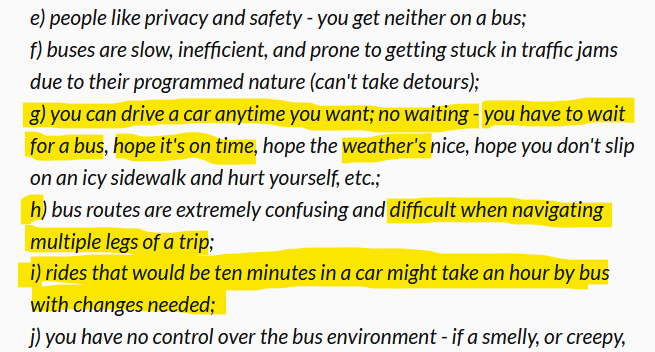
According to Hall-the-urbanist, one would assume that it is “bs” and a “conspiracy theory” that (1) cars are faster than buses, and (2) people prefer them. In making this sure assertion, this Lexington Urban Expert was willing to overlook pretty definitive real-world data demonstrating Lexingtonians’ overwhelming preference for driving cars.

The urbanist was also ignoring the reality of his own city’s bus grid. One is left to wonder if Hall has ever actually had to use LexTran.
Here, let’s conjure an imaginary immigrant mom from Ghana who lives with her family in an apartment at the intersection of Anniston and Augusta. She needs to travel to her imaginary job in the commercial district known as Hamburg Pavillion. Let’s let the b.s. conspiracy-theory app you may know as Google Maps do the work here to compare her drive and bus times:
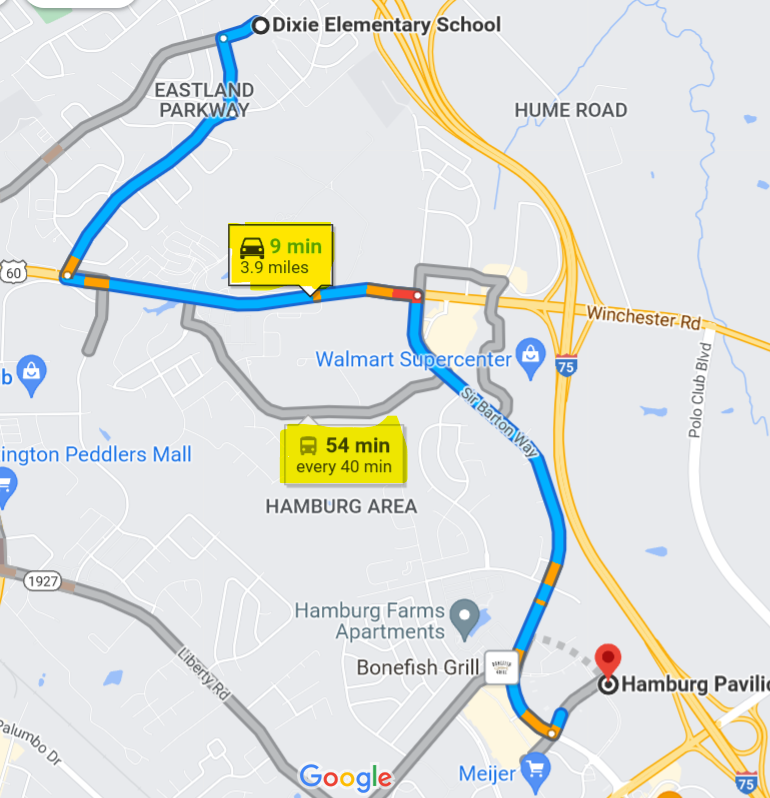
IRL, this graphic demonstrating a 45-minute discrepancy doesn’t even illustrate the whole story. After grabbing the #7 Line nearby Dixie Elementary, our theoretical immigrant bus-riding mother from Ghana would have to first route off-map and into the downtown LexTran station on Vine Street, await 10 minutes for the #10 Hamburg Line, then travel out Winchester Road and back into the map on Liberty Road below the Peddler’s Mall. After 6:00PM and on weekends when LexTran runs roughly every 60-80 minutes, the discrepancy between car and bus travel would be more extreme, and the two routes slightly altered from their weekday norm. Hell, Blake, buses don’t even run between midnight and 6:00 AM in this city–any day of the week.
One might understand the reality of bus-life in Lexington and arrive at different conclusions than Saturday. I do. Tellingly, though, (and as a wonderful example of the dumbing, constricting effects of Fairway propaganda) not one member of the LUF brigade said a word about LexTran during Hall’s reality-defying banning spectacle.
As a person who spent a half-decade navigating my own way around town predominantly via LexTran, I might have engaged with Saturday’s comment. Recognized its reality but drawn different conclusions. But I am also Flak, from the deep rough laying beyond the Fairway’s northern edges. I, too, am banned from posting on the same forum. (Preemptively banned, in my case.)
We often think of the political center as a place of union and consensus, a merging of the minds. In 21st century America, though, the center increasingly operates as a place of division rooted in fantasy. It may seem perfectly logical for a Lexington urbanist forum patronized by city leaders of all types to discuss issues with LexTran. An assumed openness to engagement is certainly what forums like LUF and On the Table are set up to convey.
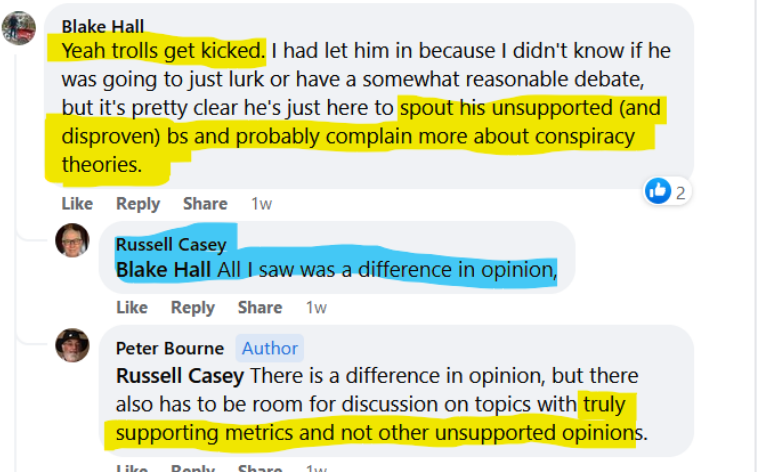
But as you can see, to get an honest and reality-based conversation about LexTran, you have to leave that Fairway of local urbanist respectability and head instead…here…for a dialogue between two banned Flackers tromping their way through the Lexington rough.
Danny Mayer, editor
***
North of Center: Last month, you requested permission to post in the somewhat prominent Lexington Urbanist Forum (LUF), which seems to be operated by Peter Bourne and Blake Hall. [Editor’s note: in a comment to Part 1, Bourne states that he does not help run the group.] What was the reasoning behind your request to contribute to LUF?
Barry Saturday: Joining the group was interesting. I no doubt would have learned a lot about their philosophy and strategy by participating on the site. I like learning from others’ viewpoints, and Americans traditionally have valued freedom of expression in order to at least hone their own arguments.
NoC: Your tenure with the Lexington Urbanist Forum did not last long. By our count, you were banned on your third post in the Forum, on the topic of Lexington busing. Hall claimed you as a “troll,” writing to his group that it was “pretty clear he’s just here to spout his unsupported (and disproven) bs and probably complain more about conspiracy theories.”
While it is clear that the urbanist Hall disagrees with your conclusions, his assessment of your views as disproven bullshit seem a bit harsh and not a little factually incorrect. Here, for example, is an Atlanta urbanist who broadly shares many of your assessments of busing–but not your conclusions.
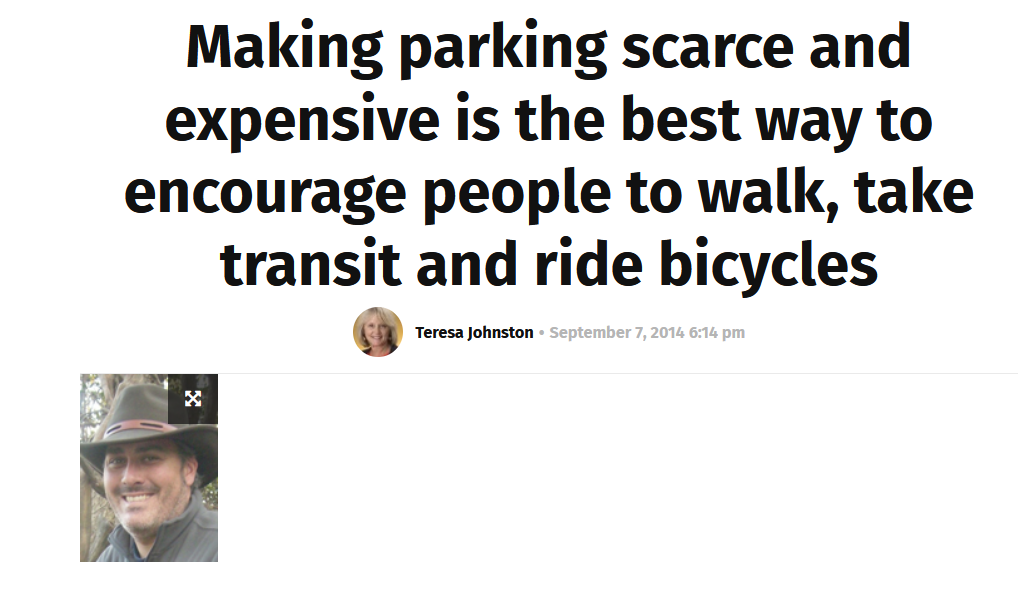
Can you demonstrate how your claims might not be “conspiracy theory,” as Hall claimed in banning you, but rather relevant for a forum so focused on urbanism?
BR: You asked about my comment. Let’s look at a couple assertions: “Bus routes are extremely confusing and difficult when navigating multiple legs of a trip.” This is not just my opinion. Ask voters in town…or non-voters…tourists…literally anybody. Ask tourists visiting large cities, even those with highly efficient mass-transit systems. Navigating multiple legs of a trip is tricky.
Obviously, if one goes to work every day using the subway, the difficulty of navigating that complexity drops dramatically over time. Bus routes are far more difficult, take longer, and often require travelers to go much further distances when navigating multiple legs on a bus than they would if they had a car. For people with busy schedules, which is nearly everyone, using the bus system is simply inefficient and would drastically lower their daily productivity.
A second claim I made was how rides in a car are dramatically shorter and more efficient. It’s pretty obvious that bus routes are static, while car travel can be dynamic, meaning it’s not in a fixed pattern. This allows a car to take an alternate route quickly if a traffic jam materializes, saving large amounts of time for the traveler.
A third claim related to personal space, such as a trunk. This one may be the most self-evident of all, as when driving a car, the entire vehicle is your personal space, including the trunk, which allows secure, private storage. What if, for example, I need to pick up both dry cleaning, and groceries on the way home, which would be a common occurrence for many people? Even if we imagine that we can dictate which comes first, the dry cleaner or the grocery, where do we put the dry cleaning we pick up when we’re at the grocery? Where do we put the groceries while we pick up the dry cleaning? This is just one of many examples related to the value of personal space in a vehicle.
When Blake Hall decided my views were”trolling,” Russell Casey, a commenter on the page stated he felt that “All I see is a difference of opinion.” Casey’s comment was immediately attacked by both moderators. Peter and Blake effectively shut down any possible debate.
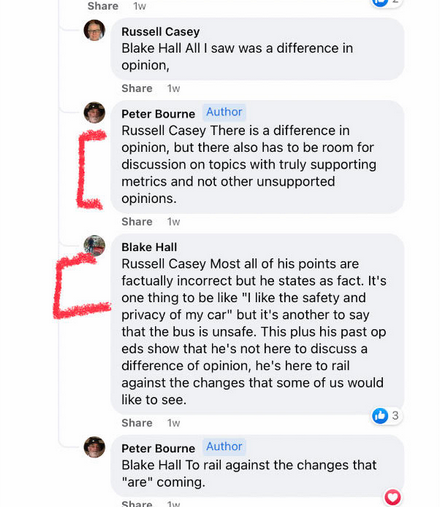
This is a perfect example of how any alternative points of view can render one “persona non-grata” to the control-centered APA Urbanists. You’ll see at the bottom how Peter has literally no interest in what anyone else has to say, when he claims that my purpose is “[t]o rail against the changes that “are” coming.” If the changes “are” coming, then the value of any debate in Peter’s eyes is really one of two things: convincing those on the fence, or proposing modifications in line with the existing thinking that may improve upon the original. To him, there’s no value in views that don’t advance his agenda.
At minimum, the above demonstrates that the APA Urbanist agenda is far more important than anyone’s opinions, let alone their freedoms. If you thought perhaps there was some room for negotiation with Peter, that should put a nail in that coffin.
NoC: In other writings, you’ve stated that LexTran ridership is roughly equal to the amount of LexTran workers employed to shuttle those riders throughout the city. While many LexTran routes are habitually empty or near-empty, its #5 Nicholasville line is always packed through the mall area, at least. Economically, this line has bus-filling advantages in that it has UK-density on one end, and mall-Summit-Lexington Green density at the other end. And because of the UK influence, #5 also gets 15 minute routes, unlike other LexTran routes that run on 35 minute schedules.
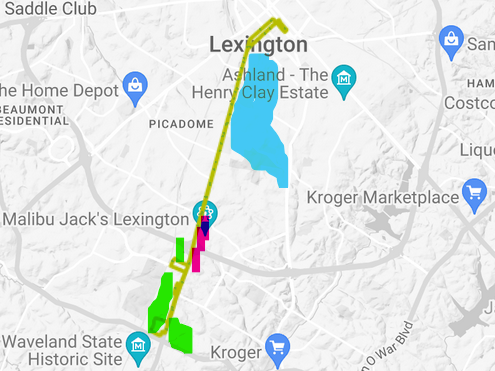
With these busses staying pretty full, does that demonstrate a clear economic market for LexTran development that your ridership numbers might obscure?
I certainly saw where the interviewer, Danny Mayer, called me a “bus-hater” in a post shared on the Urbanist forum.
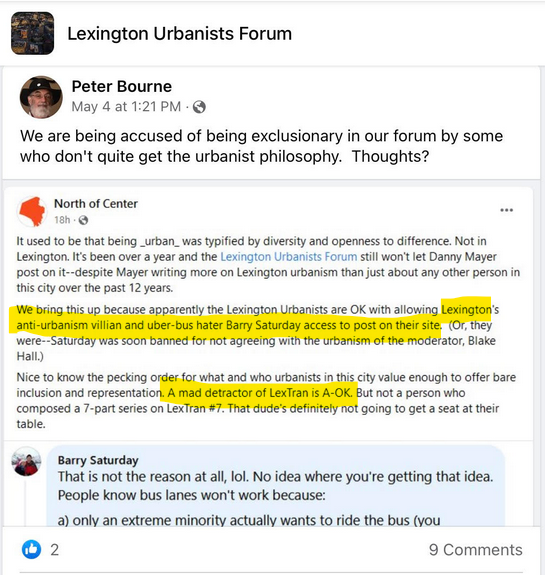
To be accurate, I don’t hate buses, and I’m not opposed to school buses or chartered coaches, for example. That would be a great waste of emotional energy. As a student of economics, it might be more accurate to say I disdain inefficiency, and city buses are the most inefficient mode of transport available in Lexington, as they neither provide physical health benefits, as cycling and walking do, nor are they useful for traveling any distance in a reasonable amount of time. Even worse, they’re also the most expensive form of transportation available in Lexington, as taxpayers spend $20M every single year on a service used by less than 1% of Lexingtonians.
Your question mentions the few routes that are profitable for LexTran (there were just four at my last count). This is a great opportunity to prove I don’t “hate” buses. If buses are the most efficient use of the system, then by all means let’s use buses. But for the vast majority of routes, they’re simply inefficient and wasteful. I would also advocate that we let UK handle their own routes. Similarly, where there is a large interest in transit, but not enough to justify a full-size bus, shuttles/trolleys may be an option.
In contrast to what we pay for LexTran, we could provide every single 4 year-old in Lexington with access to quality public and / or private preschool for just $13M. This would solve major issues for Lexington all by itself, such as leveling off the variability in academic inequality and career outcomes between those who have the means to afford preschool and those who don’t, and limiting the demand for gangs, as kids performing well in school rarely see value in crime when they have much better options available and hope for a prosperous future.
NoC: You’ve referenced before an idea for smaller, shuttle-type, busses. How do you imagine these working in practice?
BS: My actual proposal is that Lexington partner with a ride-hailing service, such as Uber or Lyft, in order to provide a certain number of free rides daily to those who qualify, such as those receiving TANF benefits, unemployment, etc. so that they can have access to quality transportation at low or no cost. If you ask just about anyone in Lexington whether they’d like to wait at a bus stop or call an Uber/Lyft on an app, it’s pretty obvious that waiting in a safe, dry location is better than waiting out in the elements for a bus. We may even be able to persuade the ride-hailing service to do a cost-share on the low-income passengers, as such charity would be great PR for their business (and a tax write-off).
We would likely save so much money with this plan that it would be possible to purchase basic cellphones for those that qualify for free rides to ensure they have access to the app. If we implement city-wide wi-fi, not only could users order a ride, the city would then be able to allow them free access to the internet as well.
NoC: Do our bans from the Lexington Urbanist Forum, which is read and utilized by local media, elected politicians and key non-profit officials, say something about the state of our local and national civic dialogue? You and I have vastly different perspectives–yet we both were deemed inadmissable…dangerously inadmissable.
BS: What we’re seeing nationally is an influx of people in positions of authority who appear to have zero interest in democratic principles. This should be very concerning to everyone, as ignoring its growth can lead to dramatically curtailed freedoms. The limitation of speech to only certain approved individuals is problematic at best, and an inevitable precursor to tyranny of the minority at worst. I’m not familiar with any totalitarian government that didn’t have this approach to “unapproved” speech.

Democratic governments, by contrast, have benefited greatly and modernized faster than other forms of government precisely because of the freedom of speech. To hearken back to a previous question: if the United States regulated speech the way the Urbanists do, would we have ever heard of Frederick Douglass? Would we have civil rights today? Women’s rights? The answer of course, is not likely, or it would have taken much longer, at best.
So, why do Peter and Blake feel the need to attack any alternative points of view? Why can’t they allow for a healthy debate? As a student of history, that control mindset appears when power, not the best solution for people, is the desired outcome. Look to any tyrannical regime looking to increase power, and silencing opposing views is the modus operandi.

Blake in particular loves calling his opponents “conspiracy theorists”. I’d love to see what Hall views as a “conspiracy theory.” Really, these days, when people label others as “conspiracy theorists,” what the accuser is really saying is that the accuser has no legitimate argument, so they’re hoping to dehumanize their opponent. Like spouting that anyone who disagrees with your thoughts is a racist, it’s become a tool for the vicious and power-hungry.
There are no conspiracy theories in Planning that I’m aware of. The reality of Planning’s interest in removing car lanes off every artery in town, starting with the relative secrecy of the Imagine Nicholasville Road project, doesn’t require a theory. In 2018, I heard it directly from Planning employees at a Fayette Alliance event and later, in a meeting with the Division of Planning’s leadership. In 2021, it was passed by the Planning Commission. Nobody I’ve spoken with in the 4th District wants this. Nobody. It’s so unpopular, it’s one of those rare things that unite all voters.
It is sad, but is also very clear that the moderators of that forum have zero interest in anyone’s opinion, unless it’s from their acolytes or those willing to become their acolytes. It’s the same with Planning’s On the Table questions. They are designed to “lead the witness,” so that participants’ answers can be predicted and weaponized against Council. Fortunately, there are a number of people already on Council I’ve spoken with who are on to Planning’s games. I’ve been a leader in exposing the problems inherent in Lexington Planning, and we’re starting to see the results. Sunlight is the best disinfectant.

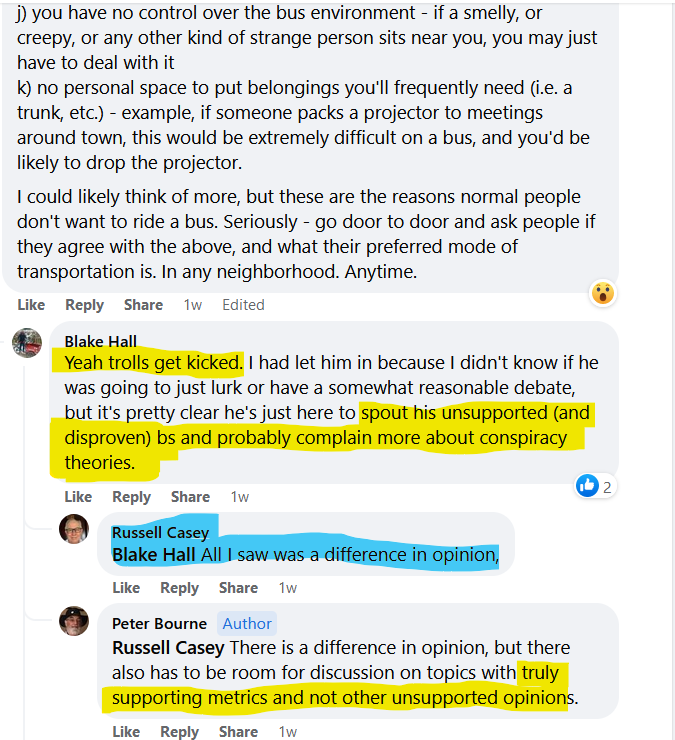

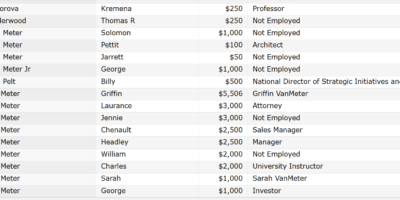

bsaturday
maybe time to take this one down lol